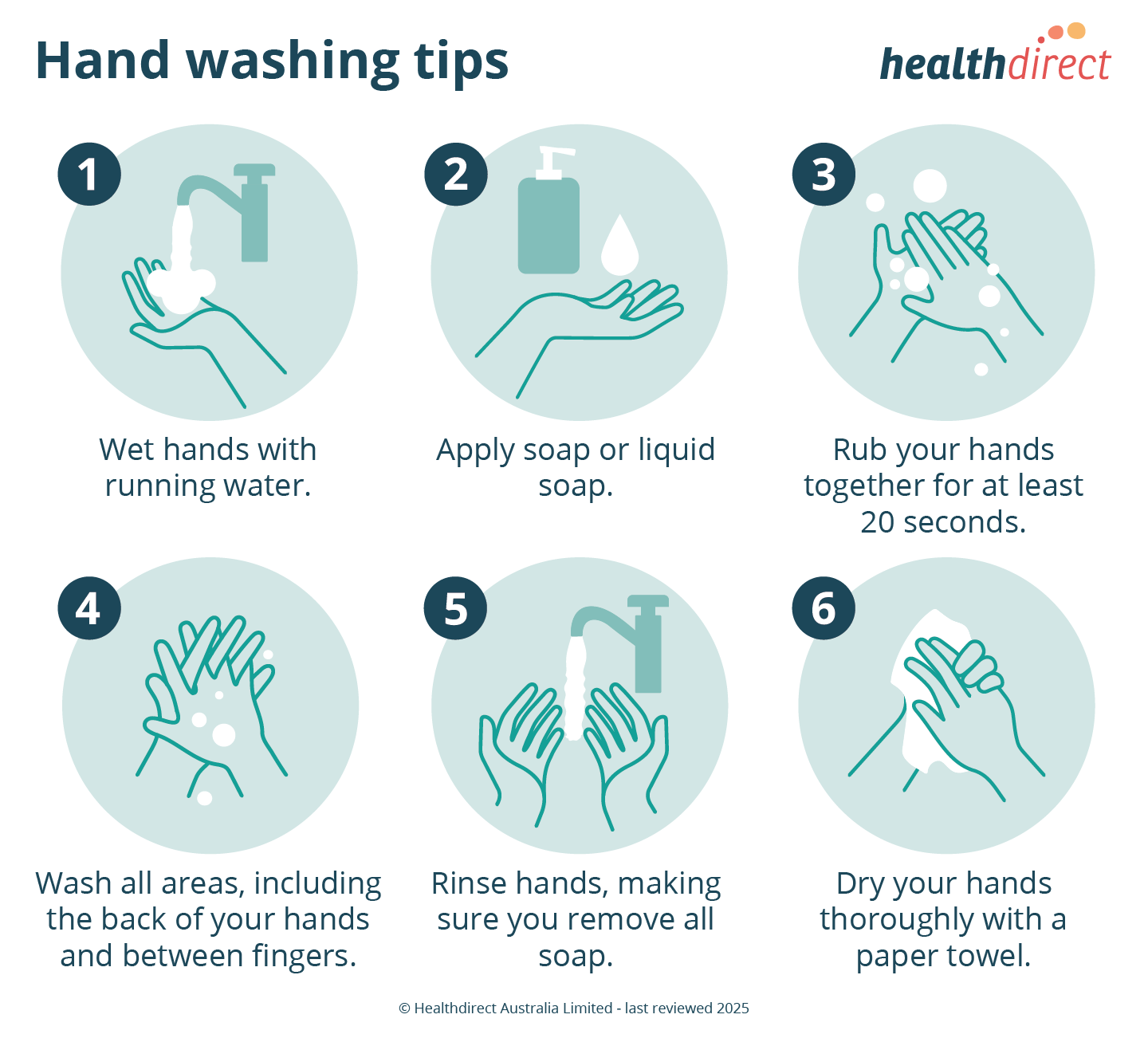Personal hygiene for children
Key facts
- Personal hygiene is the practice of keeping yourself clean.
- Your child will have to learn good personal hygiene habits — this becomes even more important as they grow older.
- You can help your child by modelling good personal care and hygiene practices.
What is personal hygiene for children?
Personal hygiene is the practice of keeping yourself clean. It can also protect the health of others.
Your child needs to keep themselves clean to remain healthy. Learning about good personal hygiene will help boost their self-esteem and teach them life skills.
You can help your child by modelling good personal care and hygiene practices.
Teaching your child good hygiene habits
For children, the basics of good personal hygiene are:
- washing their hands
- bathing and showering
- brushing and flossing their teeth
- using the toilet
- washing and brushing their hair
- covering their mouth when they cough
You will have to help your child learn and practise good personal hygiene habits. These will become even more important as they grow older and approach puberty.
Being able to talk openly and honestly about keeping clean is important. This will help you manage more difficult personal hygiene issues that are likely to come up when they are teenagers.
Washing hands
Regular hand washing will help prevent your child from getting sick. It also helps stop them passing illnesses on to other children.
Encourage your child to wash their hands with soap and water for 20 seconds. This is about how long it takes to sing happy birthday 2 times.
Your child should wash their hands:
- after going to the toilet
- before eating or making food
- after blowing their nose, sneezing or coughing
- after touching animals (including cats and dogs)
- when their hands look dirty
Explain to your child that even though they can't see the germs, they are still there.

Bathing and showering
Never leave a child under 5 years of age alone in the bath.
Children need regular baths or showers. You may want to do this at the end of the day as part of your child's bedtime routine.
It's a good idea for your child to bathe if they:
- are visibly dirty
- have had a poo that was not contained by their nappy
- have been in the pool or at the beach
Make sure your child washes all their body, including:
- under their arms
- their genital area
- between their toes
Make sure that their body is thoroughly dry before they get dressed.
Tweens and teens may need to be encouraged to:
- shower regularly
- use deodorant
- take care of pimples
Brushing and flossing their teeth
Teach your child to look after their teeth as soon as their first tooth appears.
They should brush their teeth 2 times a day:
- in the morning
- before they go to sleep
They should brush with a pea-sized amount of children's toothpaste that contains fluoride.
As they get more teeth, you should also teach them to floss 2 times a day.
You will need to help your child brush their teeth until they are about 8 years old.
This can help prevent tooth decay.
All children should see a dentist at least once a year.
Using the toilet
Most children learn to use the toilet before they start school.
You can help your child to toilet by:
- helping them to wear clothes that are easy to remove
- keeping toilet paper within easy reach
- reminding your child to wipe their bottom until the toilet paper is clean
- reminding your child to wash their hands
Washing and brushing their hair
Many children don't like having their hair washed or brushed. If this is the case, ask your child what they don't like about hair washing. You can discuss ways of helping.
Let younger children use goggles or a flannel to stop the water going in their eyes.
Your child's hair should be washed 1 to 2 times a week. If their hair is very oily or they play a lot of sport, it might need washing more often.
If possible, let your child brush their own hair. Remember that different hair types require different types of care.
Head lice and nits are very common in children.
Cough etiquette
Cough etiquette are actions you take to lower the chance of spreading illnesses to other people.
- Sneeze or cough into a tissue, and throw the tissue in the bin straight away
- If you don't have a tissue, sneeze or cough into your elbow. Do not use your hands.
- Always wash your hands after sneezing or coughing. If you can't wash your hands, use hand sanitiser.
- Try to keep your hands away from your eyes, nose and mouth.
- Move away from other people who are sneezing or coughing.
Resources and Support
You can call the healthdirect helpline on 1800 022 222 (known as NURSE-ON-CALL in Victoria). A registered nurse is available to speak with 24 hours a day, 7 days a week.
Learn more here about the development and quality assurance of healthdirect content.
Last reviewed: August 2024














